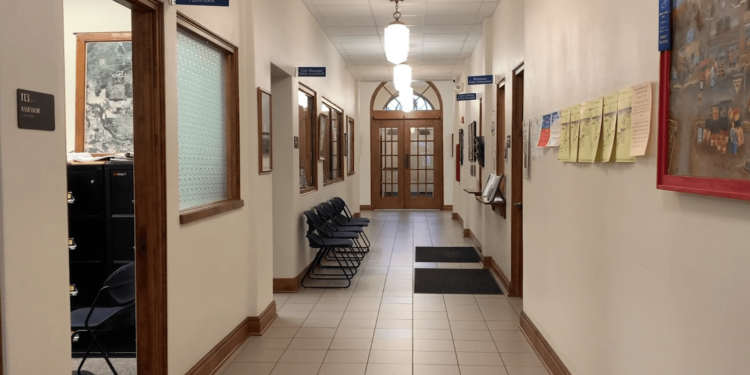KINGSFORD, Mich. – (WZMQ) – In the aftermath of a pandemic-induced housing surge, the city of Kingsford is still seeing the ripple-effect of skyrocketing property values. Kyle Mulka, the City Assessor, observes, “Not just in the state, but across the nation, there was kind of an explosion of the residential real estate market.” He explained, ”I’m bound to the market. I have to use sales data to adjust property values in Kingsford. What you’re seeing across-the-board, particularly in the residential class, are pretty steep increases in assessed value, which in Michigan is 50% of market value or true cash value.”
For those who already own their home, Michigan law protects property owners from being taxed out of the market. “The other value that you have to worry about is taxable value, which, as long as you continuously own a property, is capped, following a purchase. It becomes capped, and then it only goes up by the rate of inflation or 5%, whichever is less, so the last two years we saw 5%,” continued. Mulka. “It makes it so that you’re not taxed out of your home, or if you continuously own it, you can expect modest increases, pretty stable increases for the time that you own that property.”
Still, a common misunderstanding, Mulka notes, is people who get their renewed assessment and think that is what they’ll be paying taxes on, when in reality the assessed value is supposed to reflect what a property owner could sell for in the current market, and the taxable value is where property taxes are calculated from.
“A lot of time when people come in, they see that big increase in assessed value. They think that they’re going to be paying hundreds of dollars more in taxes, when in fact their taxable only went up this year and this year it went up 5%, -which is more than what it usually goes up – that’s the only amount you’re going to be paying more on is that taxable value increase, not the assessed value. So that’s the most common, I wouldn’t say mistake, but just a misunderstanding people have about their assessment change.”
And though taxable value did go up again this year, Michigan state law protects property owners keeping the increases at that even 5%, rather than either this year’s current 5.1%, or last year’s 7.9%.
Despite a slight drop in inflation rates, Mulka anticipates more stability may return in about a year. However, due to the city’s assessment cycle, property values still reflect the pandemic’s market frenzy.
“So my sales study period is from March 31, 2023 and 2 years prior so within that window which is kind of the high of that boom in the residential real estate market we’re still using that data, so it’s driving values up quite a bit, and then next year the oldest year sales will fall off and look at the new year of sales which will more accurately reflect the market now that we’re seeing,” informed Mulka.
He notes, “Some states have passed similar laws that property values are capped for owners, but in Michigan particularly it’s a good system.” Mulka emphasizes, “So my sales study period is from March 31, 2023, and 2 years prior so within that window which is kind of the high of that boom in the residential real estate market we’re still using that data.” He adds, “At any point in the year, you can request a copy of your record card you can compare with the city has to what your house actually is, and we can make corrections, and that could lower your assessment based on what’s actually on your property as opposed to what you’re paying for, so I welcome any inquiry about that because we can fix it before it comes to an appeal.” Mulka concludes, “Most everywhere in Michigan is seeing big increases, particularly in the residential class because of the housing shortage, so values are going through the roof, and it’s kind of like the perfect storm for that right now. If you’re a new homebuyer, you know it’s a tough market.”










